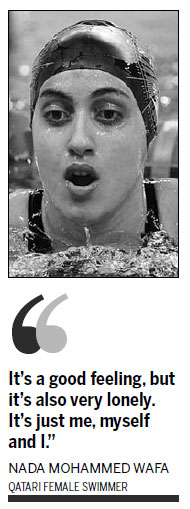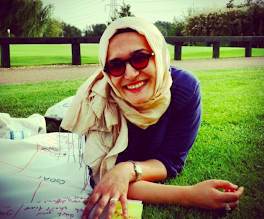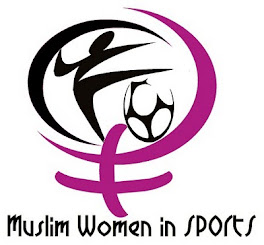By Michel Martin
Host (Martin): We want to turn our attention now to sports. Ibtihaj Muhammad is currently training about 40 hours a week, hoping to qualify for the 2012 London Olympics. Her dedication and skill would cause her to stand out, anyway, but there's another reason she does: her hijab, which she wears while competing. She hopes to become the first American Muslim woman to compete and hopefully win at the Olympic Games wearing a hijab.
And she was nice enough to take a break from her busy schedule to talk with us more about her sport and her faith. Welcome. Thank you so much for joining us.
IBTIHAJ MUHAMMAD: Thank you.
MARTIN: For listeners not familiar with fencing, could you tell us a little bit more about the sport and also about your particular weapon? You compete in the saber, if I have that right.
MUHAMMAD: Yes. A lot of people have seen fencing in movies like "The Parent Trap," or have an idea of it from "Zorro." And it's, I guess, something similar to that. We use weapons, and I'd like to describe it as the physical chess. It's very tactical, and you have to be athletic, and it's really exciting.
MARTIN: I do want to mention that you are ranked number two among U.S. women using that weapon.
MUHAMMAD: Yup.
MARTIN: So that's no small achievement there. I just want to let people know that, you're highly accomplished in your field. How did you get interested in fencing?
MUHAMMAD: I was driving past my local high school - I think I was about 12 - with my mom, and she noticed the fencing team practicing in the high school from the road and, you know, she suggested that I try out when I got to high school. And what drew us to fencing was the long sleeves and long pants that the fencers wore.
As a practicing Muslim woman, I knew that I would not only have to find a sport that accommodated my religious beliefs, but also where I could be fully covered and not have to change the uniform.
MARTIN: And had you played any sports before?
MUHAMMAD: Yeah, I have. I think back then I ran track. I played softball and a little bit of tennis.
MARTIN: But you were younger than 12, so you were not yet at the age where you would be expected to begin covering. Is that it?
MUHAMMAD: No, no, no, no. But when I got to high school, I played four years of volleyball. I played softball. And, you know, with volleyball, you wear - my teammates wore spandex and, like, a tank top. That was our team uniform. And I wore a t-shirt underneath the tank top and I swore sweatpants. So fencing was a bit different in that I didn't have to alter the uniform at all, and I really felt a part of the team.
MARTIN: What is it that you like about it? Obviously, it took to you and you've taken to it. What do you think you - what do you like about it, and why do you think you're good at it?
MUHAMMAD: You know, it's tough. I enjoy being able to critique myself when I'm finished fencing, whether I win or lose. I like that I can, you know, pick apart that particular bout. I know how I scored touches, how I lost touches or points. You know, it's really easy to, you know, lose and be able to fix your mistakes, whereas on a team, you know, I guess whether you win or lose can be in the hands of someone else, and I've never felt comfortable with that.
MARTIN: If you're just joining us, this is TELL ME MORE, from NPR News. I'm speaking with Ibtihaj Muhammad. She is a fencer. She has her sights set on the 2012 London Olympics. She's currently ranked number two among U.S. women using her weapon, the saber. And she is also a Muslim American, and she plans to compete wearing her hijab. She hopes to be the first Muslim American woman to compete at an Olympic games, in fact, wearing hijab.
I notice you said you were looking for a sport where you didn't have to modify the uniform, where hopefully you actually just fit in more and didn't feel kind of having to make these accommodations. But you have had to make accommodations to compete.
For example, I understand that you participated in a training camp in Colorado Springs which was during Ramadan, where the observant fast from sunup to sundown. How did you accommodate the rigorous training schedule - especially at altitude, right - while fasting? And also refraining from taking water. How did you do it?
MUHAMMAD: You know, that was, honestly, I think, one of the toughest Ramadans that I've had in my experience while fasting, not only, you know, abstaining from eating or drinking, but also, as you said, the altitude. Trying to be an athlete and train at a really high altitude is tough. You dehydrate a lot faster. You're susceptible to injury when you're dehydrated. So we were training twice a day, and I found that meeting with the trainers at the Olympic training center, they were really, really helpful.
They put me on a strict diet, like I didn't have a lot of salt intake. I had to wake up periodically in the night to consume Gatorade and water to make sure that I didn't suffer from dehydration. And the tough thing about it is, you know, when you're not drinking and you're training at this level, you do suffer from dehydration, and I did have a few muscle strains and pulls during that time. But, you know, fasting is a part of my life. Being Muslim is a part of my life, and, you know, fencing, I work into it, but I wouldn't fence if it hindered, you know, me practicing my religion in any way.
MARTIN: But won't the Olympic Games in 2012 coincide with Ramadan?
MUHAMMAD: Yeah, they will.
MARTIN: Well, how do you anticipate adjusting? I guess you'll have to do the same thing, right? Hydrate at night and - I don't know. What are you going to do?
MUHAMMAD: Yeah. I mean, honestly, if I'm blessed to make the team, then that's like the furthest thing from my mind, you know, having to fast while competing. I've done it before and, you know, I feel as though I'll cross that bridge when I get to it. It's not something that I worry about.
MARTIN: You know, people often - these days, the narrative around being Muslim American is, you know, you get sort of these sort of polar opposite perspectives. On the one hand, you know, there was a series on - a reality series - it's just actually concluding this weekend - called "All-American Muslim." The idea, obviously, is to show that, you know, Muslims are Americans like everybody else and they do the same stuff and, you know, they want to play sports and, you know, they have their family squabbles and, you know, men do the dishes and, you know...
MUHAMMAD: Right.
MARTIN: ...excuse me, it's not a big deal. And then there's this other thing, where there's this other sort of narrative where people are - there's a constant tension, and are people treating you differently because of your hijab or your religious practices. And then there's the other story of: Can we really trust these people? Are they really our fellow, you know, patriots? Are they really loyal to the country and so forth?
And I'm just - you know, we're talking about your sport and, really, if we weren't talking about the accommodations of Ramadan and the uniform, we could really be talking to, sort of, any other athlete. I guess what I'm wondering is, in your world, does the fact of your being a Muslim American matter a very great deal, except for the fact that it is important to you in your own individual way and as a part of who you are? Does that make sense? Do you know what I'm asking?
MUHAMMAD: It does. You know, being a Muslim American is not easy at all. It's very difficult. And the way I practice Islam speaks for itself and, you know, people can either accept me or they can choose not to. And I feel the same way about the show. I don't think that "All-American Muslim" in any way represents who I am. I like to think that I'm a very conservative Muslim, and I think that a lot of the Muslims on that show, I would say, are extremely liberal.
But when you do have people who have this close-minded view of what Islam is, it's easy to group us all into one box or one category.
MARTIN: Do you hope, though, that in part, your participation in the Olympics will - if you are lucky enough to make the team - will have some positive benefit in how people view Muslims and Islam? Or would you really prefer that they not think about your religion or your religious identity when you're competing?
MUHAMMAD: I mean, the reality is that I am different. I mean, I'm African-American and I do wear the hijab. So I know that I look completely different from my teammates, and I don't expect everyone to ignore that fact. I mean, even with them fencing, yes, there are very, very few Muslims. I'm the only Muslim on the team, but there are even fewer, I'd say, minorities.
To some way, you know, encourage or inspire minorities - religious minorities in the country to see themselves in this space, I know that I have accomplished a lot, but I think that there's definitely more ground to cover. I mean, fencing has done so much for me. You know, it helped me get into a really great university, and I wouldn't be where I am in my life without fencing, without sports. And it's helped me focus in so many ways.
So if my message reaches anyone, I hope that it reaches more kids than anything. I want them to be comfortable in their own skin and be comfortable with practicing their religion, and not only in the United States, but everywhere.
MARTIN: Ibtihaj Muhammad is a fencer. She currently ranks number two among U.S. women using her particular weapon, the saber. She is training to compete in the 2012 Olympics, which will be held in London. And she was kind enough to join us today from our studios in New York.
Ibtihaj, thank you so much for speaking with us, and good luck to you in everything. Keep us posted.
MUHAMMAD: Michel, thank you so much for having me. I appreciate it.
MARTIN: Please join us tomorrow for our regular Faith Matters conversation. We'll talk about the observance of Epiphany, or Three Kings Day.
Source:
http://www.npr.org/2012/01/05/144737954/olympic-hopeful-mixes-muslim-faith-and-fencing









